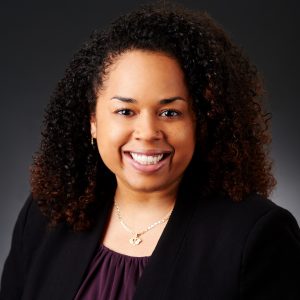In situations where employers also make their employees, or certain employees, agree to restrictive covenants, particularly noncompetes, companies expect the same uniformity and predictability regarding their enforceability as to each employee, regardless of where the employee works or lives. Employees, on the other hand, often expect (as we learned through a recent case) that even with another state’s choice of law provision, they will still be afforded the protection of the laws of their own state. This disconnect is no clearer than where non-California headquartered companies hire California residents as employees and require them to sign noncompetes governed by another state’s law. In California, noncompete agreements are generally unenforceable (with some limited exceptions). This is well-known, particularly by California residents. So, what happens in this situation if the California employee violates their noncompete? Continue reading ›
In Memoriam: Ajit Phillips
 It is with a heavy heart that the Kang Haggerty family announces the passing of our beloved colleague and friend Ajit Phillips. Ajit joined Kang Haggerty three years ago as Controller, but he was much more than that. His passion, commitment and expertise set an example for everyone here.
It is with a heavy heart that the Kang Haggerty family announces the passing of our beloved colleague and friend Ajit Phillips. Ajit joined Kang Haggerty three years ago as Controller, but he was much more than that. His passion, commitment and expertise set an example for everyone here.
Despite being in ill health for the last few months, Ajit continued to try and come to work—out of loyalty and care for us all. His sudden passing leaves a huge hole in our hearts. Our deepest condolences to his wife, Rashmi, and Ajit’s extended family. He will be missed.
Legal Intelligencer: Why Lawyers Should Care About Emojis
Although emojis have been included in smartphone operating systems for more than a decade, they are just starting to make their way into the world of litigation. While Apple’s emoji debut consisted of 54 emojis, made up primarily of different yellow smiley faces, iPhone now offers its users a broad range of hundreds of emojis, representative of different races, genders, cultures and religions. Today, there are close to 3,000 emojis in the Unicode Standard. As such, people can communicate a lot more through emojis, if they choose. And, the data shows this is what people are choosing. Over 10 billion emojis are sent each day throughout the world. Approximately 92 percent of all people who communicate online or through text messages on a smartphone use emojis, with more than one-third of them using emojis daily. Analysts have referred to the uptick in emoji use as “watching the birth of a new language.”
In 2015, emojis were mentioned in 14 federal and state court opinions. This number increased to 25 in 2016 and 33 in 2017. With the rules of the profession (Rules of Civil Procedure, Rules of Professional Conduct, Rules of Evidence) changing—slowly, albeit surely—to address the advent of social media and electronic communications, it is important to understand how emojis fit into the current legal landscape.
Kalogerakis Named to “Philadelphia’s Most Influential African Americans” List; Featured in Legal Intelligencer Q&A on Barristers’ Leadership
Kang Haggerty associate Tianna Kalogerakis was recently named to the Philadelphia Tribune’s annual “Philadelphia’s Most Influential African Americans” list. The Tribune, the nation’s oldest and greater Philadelphia’s largest newspaper serving the African-American community, honored this year’s recipients during a reception and awards program at the Pennsylvania Convention Center.
Kalogerakis was also featured in New Phila. Barristers’ President Stresses Legacy, Community Service, in ALM’s The Legal Intelligencer. In an extensive Q&A with reporter Max Mitchell, the newly-elected Barristers’ Association of Philadelphia president discusses the balancing act between heading the 1,000-member strong bar association and transitioning from judicial clerk to litigation boutique attorney at Kang Haggerty LLC.
Firm FinCEN’s Customer Due Diligence Rule and Implementation
In the September 2018 edition of the National Association of Minority and Women Owned Law Firms (“NAMWOLF”) Newsletter, Jacklyn Fetbroyt, Member of Kang Haggerty, writes Firm FinCEN’s Customer Due Diligence Rule and Implementation.

In 2016, the Financial Crimes Enforcement Network (FinCEN) issued its final rule on customer due diligence and beneficial ownership requirements (the “CDD Rule,” 31 CFR Parts 1010, 1020, 1023, et al.), promulgated under the Currency and Foreign Transactions Reporting Act of 1970, as amended by the USA PATRIOT Act of 2001 and other legislation, which legislative framework is commonly referred to as the ‘‘Bank Secrecy Act.” Notably, the Bank Secrecy Act lacks a requirement that financial institutions know the identity of the beneficial owners of their accounts – i.e., the individuals who control legal entity customers – which therefore allow a shield of anonymity for the beneficial owners. To address this perceived weakness and the limit the money laundering that it enabled, FinCEN issued the CDD Rule on May 11, 2016, and it became effective on July 11, 2016; however, covered financial institutions—including federally regulated banks, federally insured credit unions, mutual funds, brokers and dealers in securities, futures commission merchants, and introducing brokers in commodities—had until May 11, 2018, to come into full compliance with the CDD Rule. Continue reading ›
Kalogerakis Elected President of the Barristers’ Association
Philadelphia, PA (September 12, 2018): Kang Haggerty LLC is pleased to announce that attorney Tianna K. Kalogerakis was installed today as President of the Barristers’ Association of Philadelphia, Inc. The installation ceremony was held at Philadelphia City Hall and presided over by the President Judge of the Philadelphia Court of Common Pleas.
 “It is an honor to serve as President of this important organization,” said Ms. Kalogerakis. “This is a critical time to ensure that our members are not only properly represented in the legal community, but also to ensure that the Barristers’ Association is able to provide the resources, services and networks to our members and to the greater Philadelphia community. As a lawyer of color and a woman in the profession, I believe that the organization helps us be the best attorneys possible and amplifies our positive impact.”
“It is an honor to serve as President of this important organization,” said Ms. Kalogerakis. “This is a critical time to ensure that our members are not only properly represented in the legal community, but also to ensure that the Barristers’ Association is able to provide the resources, services and networks to our members and to the greater Philadelphia community. As a lawyer of color and a woman in the profession, I believe that the organization helps us be the best attorneys possible and amplifies our positive impact.”
Ms. Kalogerakis has been an active member of the Barristers’ Association since 2013, previously holding positions as President-Elect, Vice President of Administration, Chair of the Dr. Martin Luther King, Jr. Annual Memorial Breakfast, Corresponding Secretary, and Young Lawyers’ Division Executive Committee Liaison.
Legal Intelligencer: Borrowing Statute: NY’s Bar to the Unsuspecting, Out-of-State Investor
In the September 6, 2018 edition of The Legal Intelligencer, Edward Kang, Managing Member of Kang Haggerty, and Tianna Kalogerakis, Associate of Kang Haggerty, co-authored “Borrowing Statute: NY’s Bar to the Unsuspecting, Out-of-State Investor.”
Despite the plaintiff-friendly pleading standards for securities fraud outlined by the Supreme Court in Merck & Co. v. Reynolds, 130 S. Ct. 1784 (2010), out-of-state investors need to be particularly vigilant in pursuing fraud-related common law claims in New York, being careful not to become blocked by the borrowing statute.
New York City is home to the world’s largest stock exchange, the New York Stock Exchange, and is host to financial service providers. This concentration of wealth and financial expertise has enticed many out-of-state investors to place their money in securities with New York-based financial institutions in the prospect of riches; however, coupled with the influx of these out-of-state investments is the potential for legal action by each dissatisfied or defrauded investor. New York developed the “borrowing statute” to protect its residents and deter actions by nonresidents including out-of-state investors in securities and commodities. Despite the plaintiff-friendly pleading standards for securities fraud outlined by the Supreme Court in Merck & Co. v. Reynolds, 130 S. Ct. 1784 (2010), out-of-state investors need to be particularly vigilant in pursuing fraud-related common law claims in New York, being careful not to become blocked by the borrowing statute.
Jacklyn Fetbroyt on “Negotiating Business Contracts”
Kang Haggerty is proud to share that Jacklyn Fetbroyt will be presenting at the National Business Institute (NBI) seminar “Negotiating Business Contracts” on September 21, 2018. Jacklyn Fetbroyt will speak on the following topics and more:
Contract Risk Allocation Secrets: Safeguard Clients and Preserve Business Relationships
- How Key Risk-Shifting Provisions Interrelate
Kang Haggerty’s Greg Mathews and Henry Donner Named to Best Lawyers in America© 2019; Donner is Lawyer of the Year for Construction Law in Philadelphia

Gregory H. Mathews

Henry J. Donner
Kang Haggerty is pleased to announce that Gregory H. Mathews and Henry J. Donner have been selected for inclusion in The Best Lawyers in America© 2019.
Legal Intelligencer: Should an Arbitrator Determine Arbitrability Where a Claim Is ‘Wholly Groundless’?
While arbitration clauses are often a topic of concern in the consumer context, they can also be a major issue in sophisticated party transactions as well—the agreements where the arbitration clause is the least of everyone’s worries. In these transactions, whether they be in the employment context or otherwise, arbitration clauses are often treated as a throwaway for which a simple copy-and-paste will do. At that forward-looking time, arbitration seems like a sensible method of dispute resolution between two like-minded people, and it is given little emphasis. When the relationships break down later, as they often do, arbitration clauses become a major issue. Too often, one side wants to be in court while the other does not. They argue whether their dispute is subject to arbitration.
 Kang Haggerty News
Kang Haggerty News

